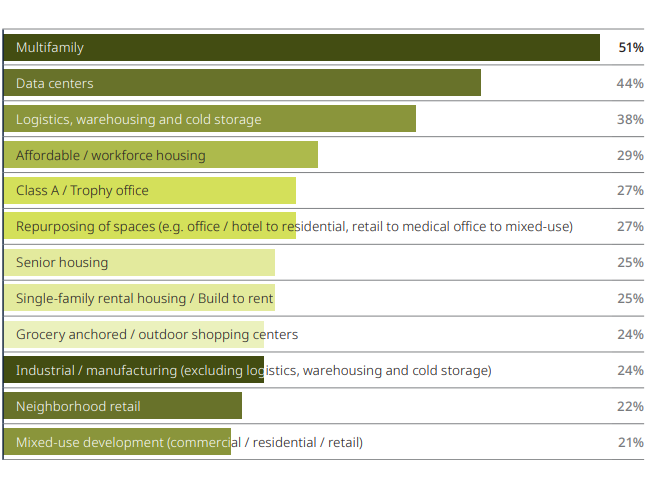4 Ways for Brokers to Up Their Prospecting Game
Experts share best practices for growing client rosters.
Being a commercial real estate broker is no easy feat. Market conditions are always changing, and whether the professional’s specialty is leasing, capital markets or investment sales, prospecting for new clients is a constant part of the job. Whether you’re a veteran or just starting out in the field, there are always new techniques and skills to learn from peers and competitors about increasing your client roster as well as closing a deal. And there are often new twists on old principles, so it’s always wise to review the basics.
With that in mind, Commercial Property Executive spoke to brokerage experts about their best practices, insights on how prospecting has changed over time and how to improve current initiatives.
Do Your Homework
One of the biggest unforced errors brokers can make is approaching a prospect with lack of knowledge. It may seem like a basic rule, but it’s essential to research both the person and the company in great detail before reaching out to a potential new client.
“Know who you are calling and get an understanding of their business model,” advises Matt Anderson, executive vice president & principal, Colliers.
In addition to initial research, it’s important to prepare for the process of prospecting. Know that it comes with rejection and it’s vital to keep a positive attitude and keep pushing forward to the next client.
Most company decision-makers you will be pitching are themselves experienced at prospecting for clients, so keep that in mind when gathering the information. This should include such steps as understanding general market conditions, utilizing your own firm’s data and drawing on the recent activities of the company you are approaching.
Developing these relationships does not happen overnight. “My greatest success stories have come from reaching out to prospective clients years before a transaction is finalized,” Anderson said. “I educated myself on their business and key leadership, slowly built relationships and gained trust, and as the need matured, I was selected to assist with their needs.”
“It all started with one thoughtful call and lots of follow-up that is more than just checking in. Add value every time you make a call.”
Trust in Tech
Gone are the days of cold-calling potential clients and waiting for them to respond. Technology is always evolving, and it is vital to stay continuously active and utilize as many resources and avenues as possible. For example, LinkedIn has become established as valuable tool for brokers because it makes connections quickly. And remember low-hanging fruit that is available on a company’s website, such as information about data, top performers and current portfolio.
Don’t rely solely on phone calls and emails for making contact. These communications can be easily overlooked and don’t provide the prospect with enough specific information about you. Multiple methods of outreach increase the chances of a forming a relationship with new prospects: phone, email, hard mail and LinkedIn, for example. In-person visits can be useful if the prospect’s office is local.
Many brokers also rely on various software tools to organize their prospecting lists. Look out for innovative tools in this area. Haller Marketing, is currently developing an automated process designed to make broker prospecting easier, said Chris Haller, the company’s president. “This will minimize the time we spend doing business development and make us more efficient,” he said. “Systems like this do exist for the B2B world, but they don’t play well with commercial real estate.”
Haller notes that other CRM platforms offer only three objects: contact information, property and company. However, when reaching out to individuals, there is a big difference between generic and customized, personalized contact. “CRE is a relationship-based business. We need to have the time to build that familiarity, affinity, recognition and access to help people accomplish what they want.”
Build Your Brand
Commercial real estate is a relationship business, and since more than one broker is usually calling your prospective customers, taking the time to build your own personal brand will help make you stand out from the competition.
Whether it happens intentionally or not, every broker develops a brand through their personal reputation. The key is to be intentional about it. With that in mind, focus on being authentic and on highlighting your skill set. Branding is a great differentiator because it ties into the broker’s personal style of prospecting. Experts say that the key is developing a system that works well, embracing it and making changes as needed
Brokers have plenty of demands on their time and energy, but at any career stage, learning is a priority. “I advise brokers to hire a coach, read books about the industry and self-improvement, take continuing education, attend seminars and become part of the local community as an active ‘Servant Leader,’” said Damian McKinney, principal & managing director, Avison Young. “These are strategies that set you apart from the competition for all the right reasons.”
Before a prospect interacts with a broker, they will most likely investigate the firm you’re working for, just as you research the prospect and the company. One of the strongest cases for a prospect to give you business is the credibility, reputation and track record of the company you represent, so make the most of the opportunity to showcase that.
Persistence is essential for broker prospecting as it is for everything a broker does.
“My greatest accomplishments have presented themselves to me when I was at my lowest moments,” McKinney recalled. “Instead of giving up, I pushed through the negative thoughts that I wasn’t going to make it and used the energy to cold-call one more time—or as many times as it took to find a ‘yes.’ “Those yesses have turned into some of my best clients who have been loyal to me for 30-plus years and millions of dollars of fees.”
Embrace Teamwork
Brokerage is a highly competitive profession, but that doesn’t mean prospecting alone. On the contrary, although you might be making individual calls and focusing on growing your own client list, teaming up with coworkers and utilizing their expertise are important assets.
“Brokers need to prospect as a team, as diverse perspectives help enhance the offering to the client,” said Manish Kashyap, global president of Advisory and Transaction Services, CBRE. “Working with a team and leveraging your firm’s capabilities can provide a more comprehensive offering to clients across a diversity of ages, gender, race, background, experience and solutions.”
If you’re new to the industry, you have a golden opportunity to learn from experts and gain best practices and strategies. In addition, working with a team can help leverage your company’s diverse perspectives for a variety of services, creating more innovative solutions and producing successful transactions.
“Clients are drawn to partners that bring the most relevant information and resources to help solve their complex challenges,” added Kashyap. “Brokers should leverage their firm’s market research and data to ensure they can accurately and quickly uncover unique, impactful solutions to help clients make more informed decisions.”









You must be logged in to post a comment.